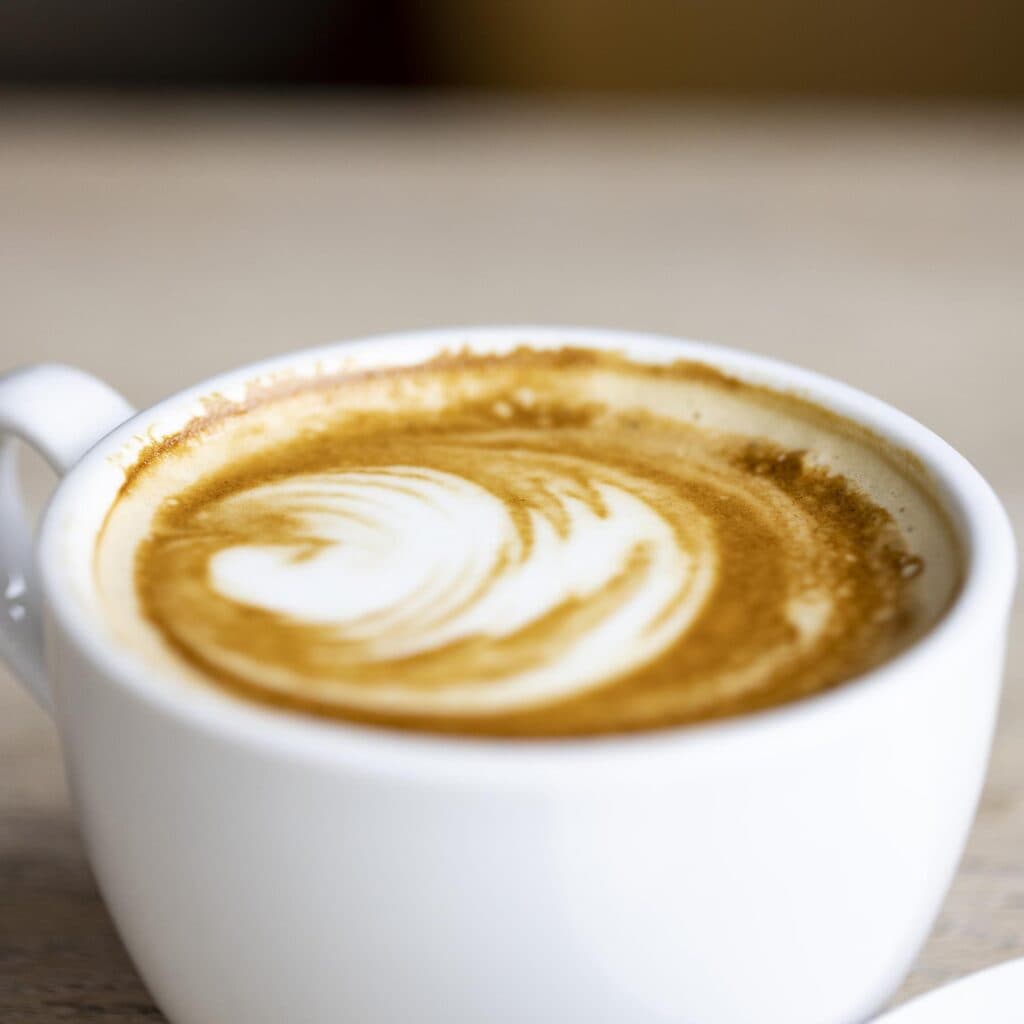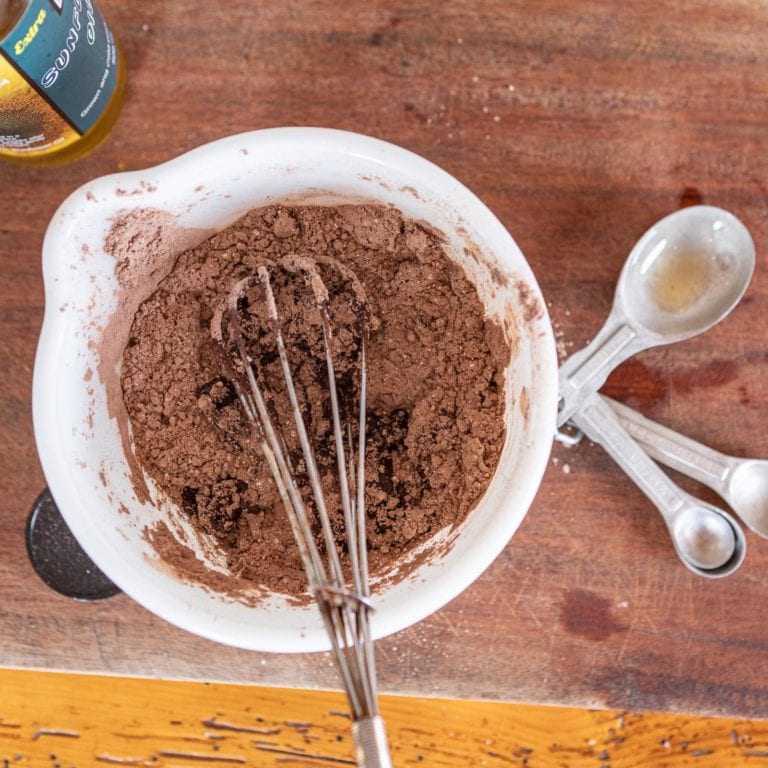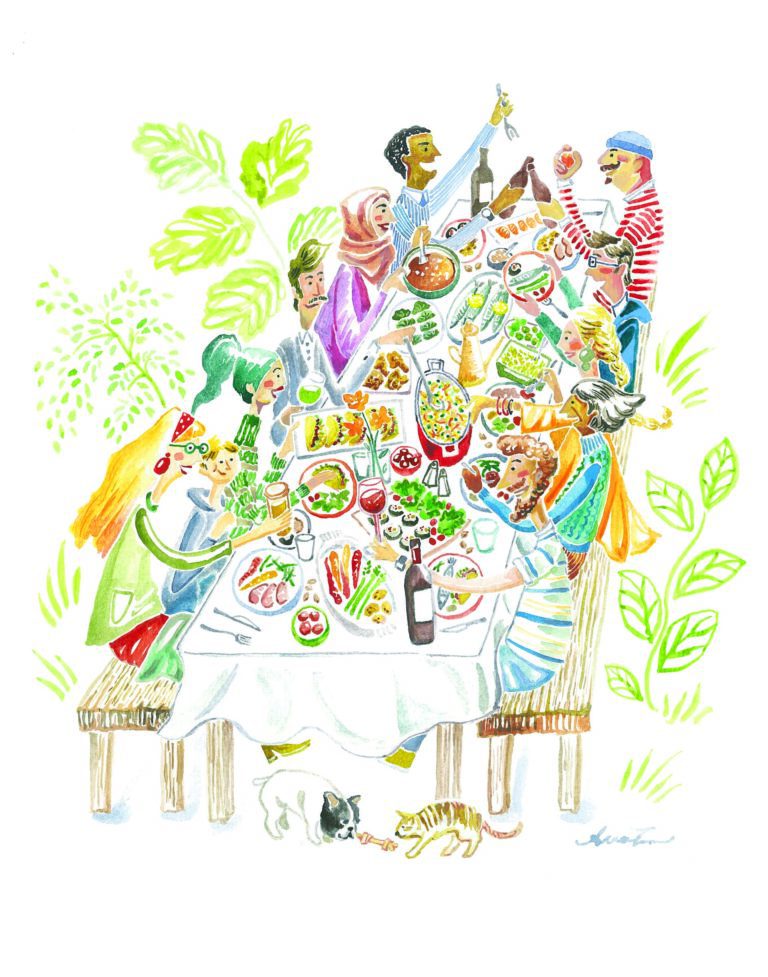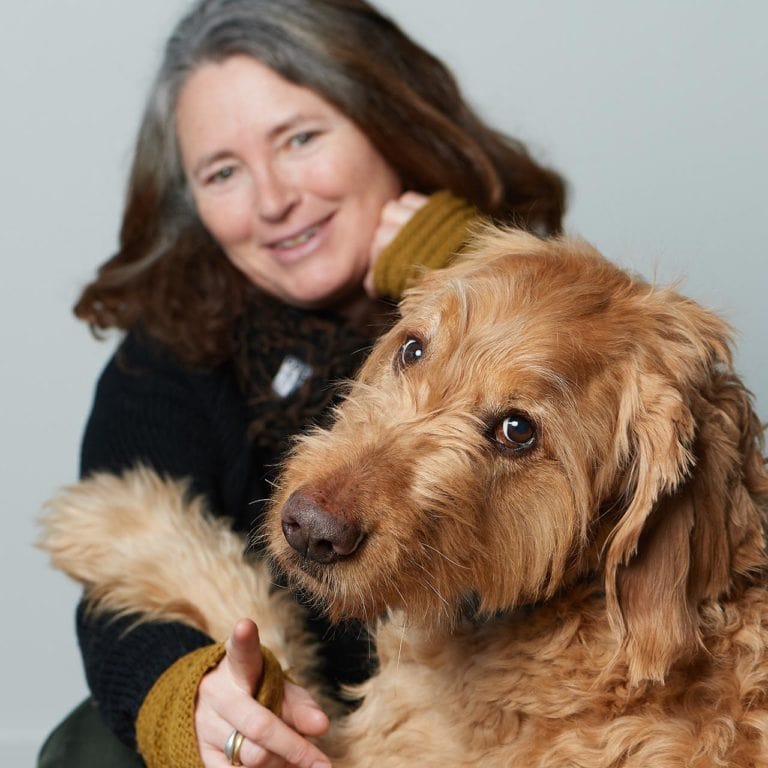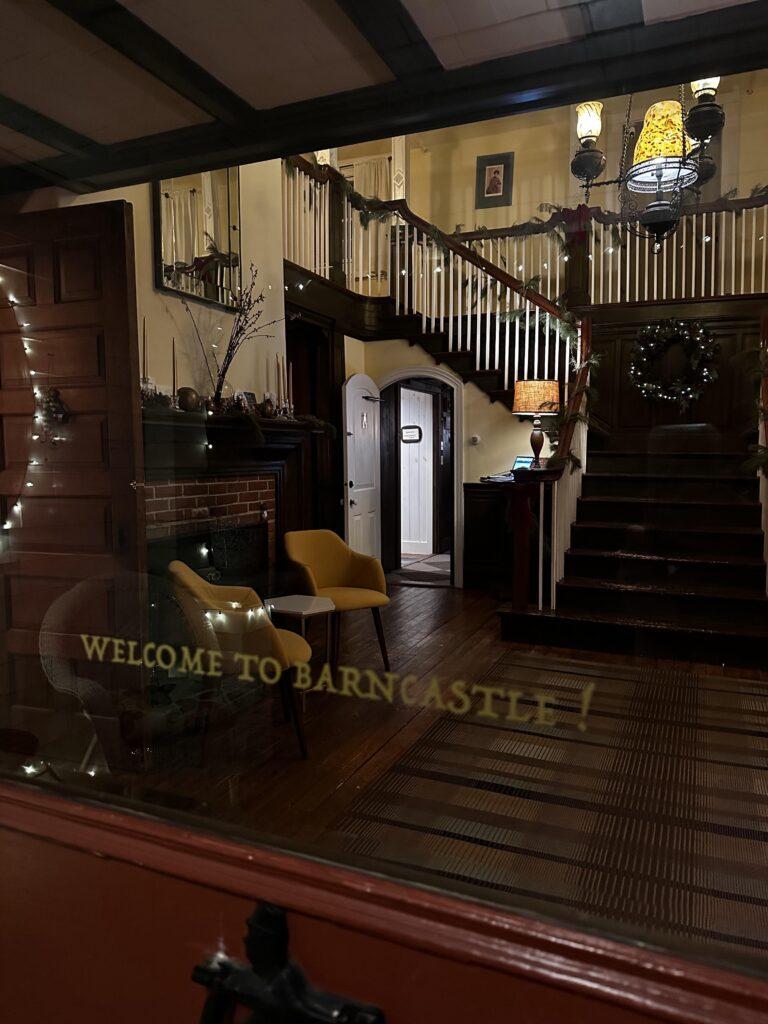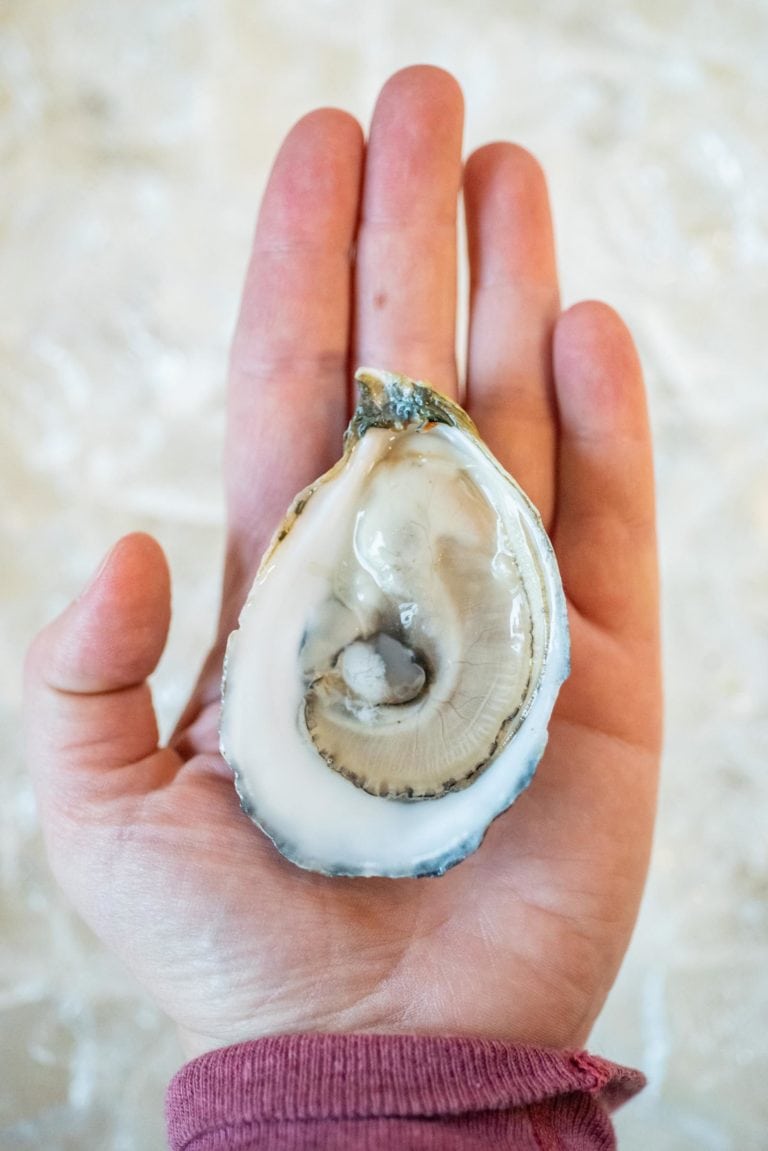In the tiny town of Bethel in western Maine, the space of a former Key Bank branch is redolent with the aroma of rich, organic espresso pulled from a gleaming, top-of-the-line La Marzocco espresso machine. Sticks of Cabot Creamery butter, lined up like toy soldiers, warm to room temperature so they can be turned into tomorrow’s croissants.
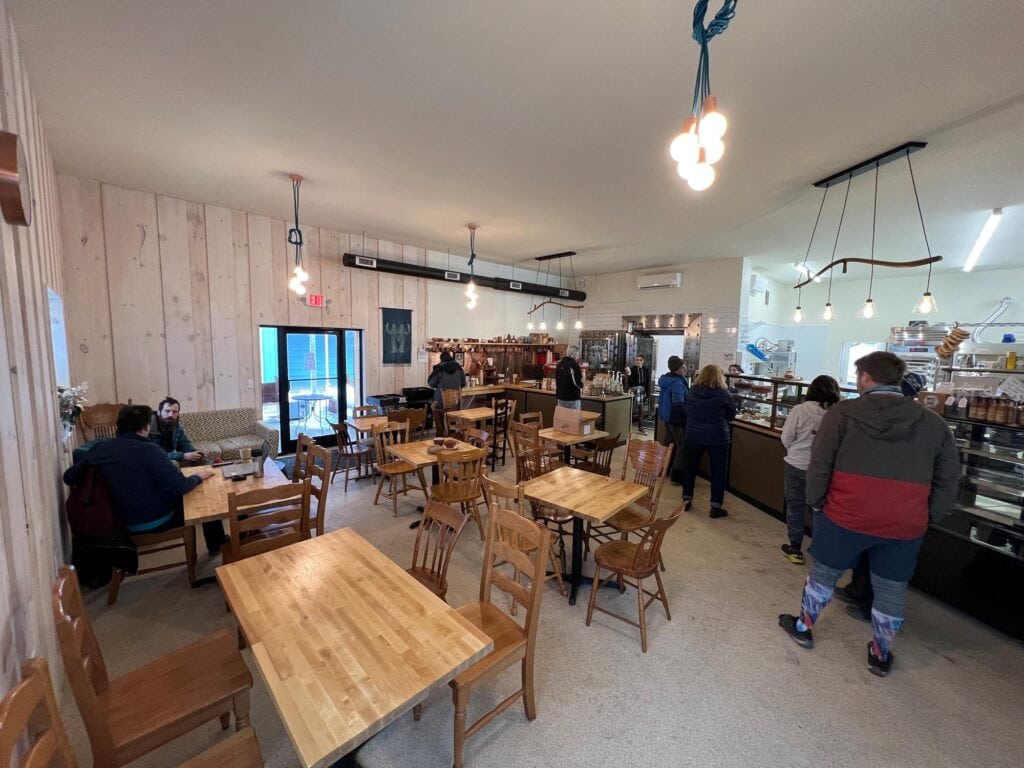
Gemini Café, which opened in late 2022, is making a name for itself as a pastry hotspot. But the coffee served there, roasted just a few miles away in Greenwood and prepared with precision, is stealing the show. “Besides the bread and butter of the business, coffee is the bread and butter of the business,” says co-owner Anna Sysko, handing me a chocolaty Americano.
The rich brew comprises an espresso blend that, through more than a dozen test batches, Sysko developed with micro-roaster Michelle Shutty of Greenwood Bean. With its airy ambiance offset by copper accents and sculptural lighting, Gemini Café typifies this moment in Maine coffee.
From rural outposts to salty coves to buzzing city streets, Maine’s café culture is more refined than ever. Signature roasts, sometimes sourced from single-lot micro-farms in far-flung coffee regions, are fueling Maine’s latest coffee revolution.
“Maine, in general, has a deep richness,” says Jacob Wienges, owner of Seafolk Coffee in Rockport Harbor. “There is so much creative spirit, skill, know-how, and extraordinary talent. The coffee scene will continue to thrive and expand and become more personalized.”
And more bespoke.
Lattes, no longer a one-size-fits-all grande affair, are named like cupcakes. At Elements in Biddeford, the popular rose latte is made from scratch with crushed rose petals and cardamom pods. At Buzz Coffee in Portland, cold brew is topped with maple foam made with syrup from Strawberry Hill Farms in Skowhegan.
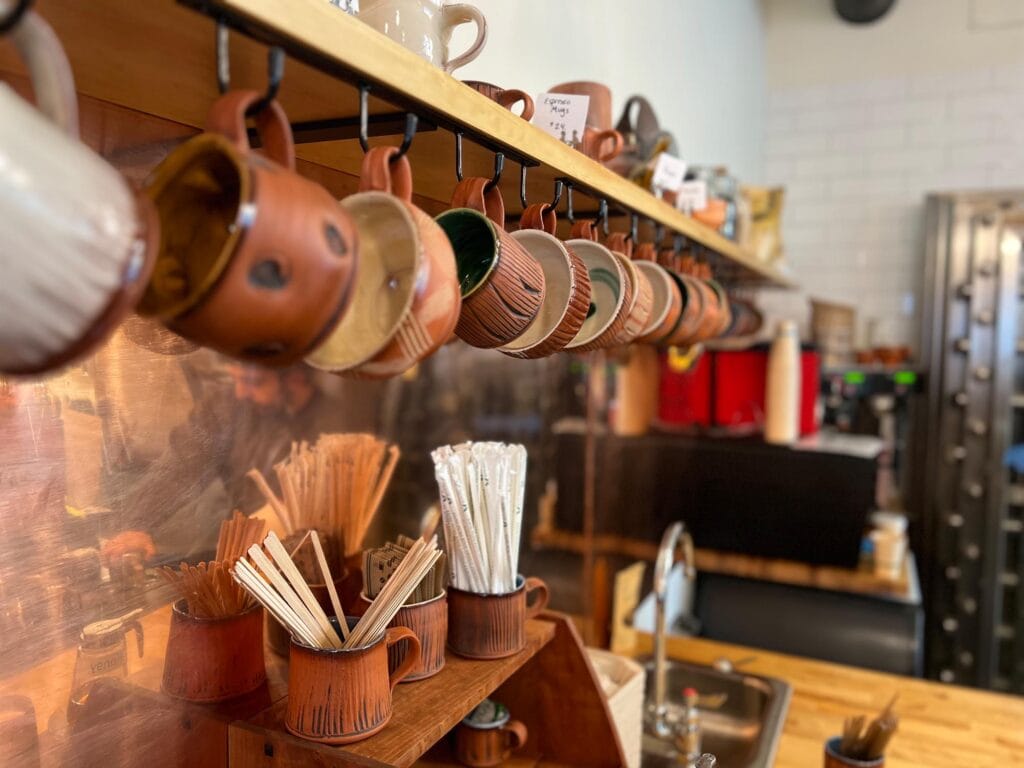
“I don’t know if it’s sustainable from a labor standpoint,” says Buzz Coffee owner Corey Koch, who uses lavender from Brunswick-based spice trader SKORDO to create the simple syrup behind his café’s signature latte, “but I enjoy making things. It’s fun.”
Maine’s coffee scene has come a long way since 1994, when Mary Allen Lindemann and Alan Spear opened the first Coffee By Design (CBD) shop on the shady side of Portland’s Congress Street. “What always amazed us, and still does, is [that] what started as a very small idea has become so much more than we ever dreamed possible,” she says.
CBD now has four cafés, three in Portland and one in L.L. Bean’s Freeport flagship store. Its wholesale business comprises 800 customers in Maine and beyond. Despite its reputation as Portland’s most-established coffee empire, Lindemann keeps innovating.
“I still see us as a very small company that can have very powerful impact, both locally and globally,” she says: locally through philanthropic endeavors, and globally with the many Central and South American farmers CBD works with.
Going on coffee farm field trips to Costa Rica helps Lindemann and her staff understand the products they sell and strengthens relationships with growers.
Geeking out
Coffee service in Maine at this moment is refined enough for anyone to be able to geek out on the details—roasts, origins, grind size—of their next cup. No matter how you quaff it, there’s a café peddling an elixir for you.
Even after celebrating its 10th year caffeinating trendy Brooklyn transplants, University of New England grad students, and tourists staying at the Lincoln Hotel in downtown Biddeford, Elements still stands as a community hub with the feel of a student union. “We are the space where people’s narratives get built,” says co-owner Katie Pinard, who, with co-owner Michael Macomber, began roasting their own beans four years ago.
To keep things interesting, Elements Coffee Roasters offers adventurous coffee drinkers barrel-aged beans with sophisticated names like Dionysus. To achieve this specialty brew, they take Honduras coffee beans and age them for a month in whiskey barrels until they are juicy and a tad boozy. Bacchus, another Elements offering, requires that Costa Rican beans sit in rum barrels, also for a month at a time, to pick up the rich tones of dark rum.
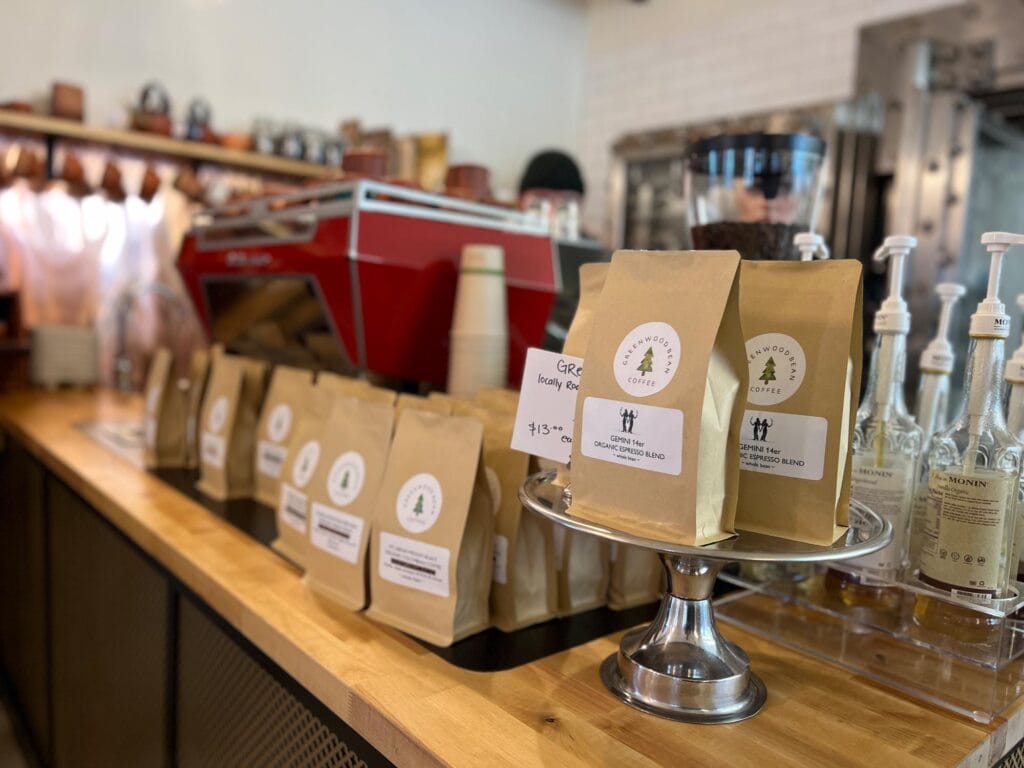
“It is more of an organic process. We are tapping into the synergy of the coffee, beer, and spirit world,” says Pinard, who points out that collaborations with Barreled Souls Brewing in Saco and Liquid Riot in Portland add intrigue and crossover appeal.
Portland’s celebrated coffee culture, sparked to life about a decade ago by CBD, Tandem, Bard, and Speckled Ax, has expanded exponentially in the last few years. Buzz Coffee on Exchange Street, Tar Coffee in the Public Market, and Burundi Star in the shadow of Maine Medical Center are three newcomers winning fans and attracting influencers.
At Burundi Star, an unpretentious café on St. John Street, owner Jocelyne Kamikazi introduces locals to the coffee of her homeland both in their cups and through an informative photo montage of the harvest-to-roast process plastered on her café walls. Her father worked in the coffee fields of this small East African nation, so Kamikazi has been up close and personal with the Burundian coffee industry. She is proud of the deep coffee history of her native land. Burundian coffee, as a class of beans, won the coffee industry’s Cup of Excellence award in 2013. And in the three years she has been open, her tiny café is creating a taste for it here.
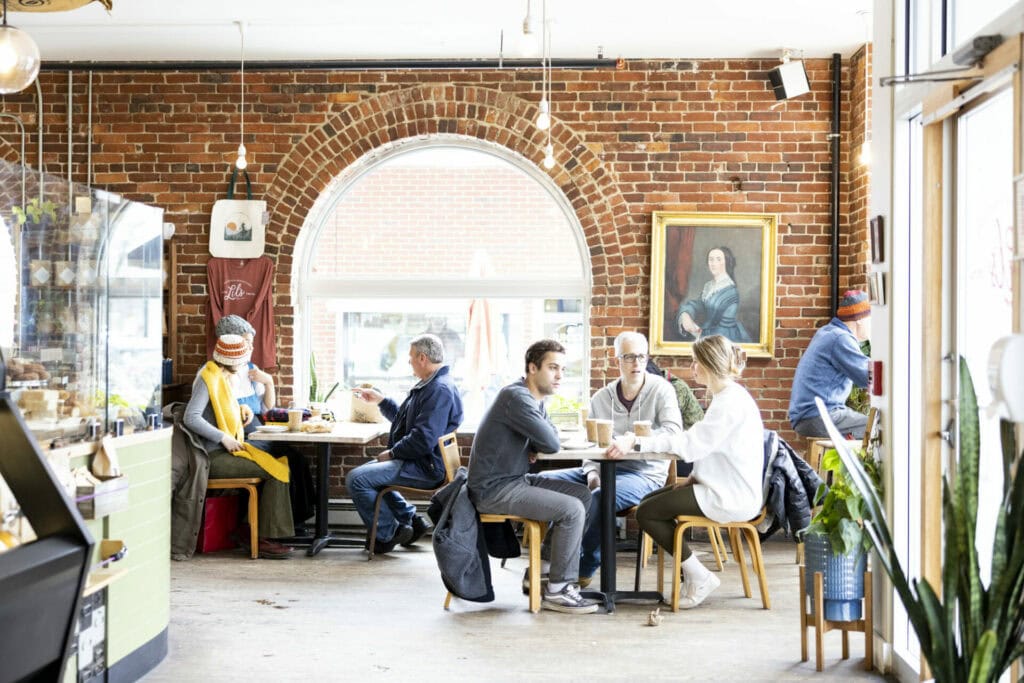
Ordered black, the clean, crisp medium roast is like a welcoming embrace from an innkeeper after a long journey. Satisfying. Surprising. Nourishing. Needed.
Kamikazi has generated a following and is working on a deal to open a second café in the headquarters of Unum.
At Buzz Coffee, Koch developed a cold brew that was such a hit, he canned it. “People have such an affinity for cold brew. I am one of those weirdos walking around with cold brew in the winter,” he says.
Starting out with a coffee cart at the Portland Farmers’ Market, Koch graduated to a shop in the Old Port in late December 2021. In his subterranean space, located amid cannabis dispensaries, high-end retail shops, and cocktail bars, he’s constantly developing new drinks. From custom matcha lattes to lavender ones, steeping spices at just the right temperature and taking care to avoid bitterness, he approaches each drink with the zeal of a mixologist.
Mixology springs to mind when you walk into Lil’s Cafe in swinging Wallingford Square. Around the corner from Kittery’s shopping outlets (yet a world away), a battery of baristas greet you at the bar. While waiting on a latte or cortado, topped with a cheerful micro-foam heart, customers can peruse Lil’s vinyl vault for lost classics from the ‘60s, ‘70s and ‘80s.
Owner Deb McCluskey, who worked in the cafe for years, purchased Lil’s two years ago and has mixed up the cafe’s offerings. Coffee roasted in the Berkshires Hills is now the signature blend, bagels are made in house, and the dog crullers are a hit with those who wag.
Blind Tiger Coffee owner Charlie Biando brims with coffee cred. The Philly native has worked for La Marzocco in Seattle and Blue Bottle in San Francisco. When the pandemic hit, he moved to the Bangor region, but he didn’t leave coffee behind.
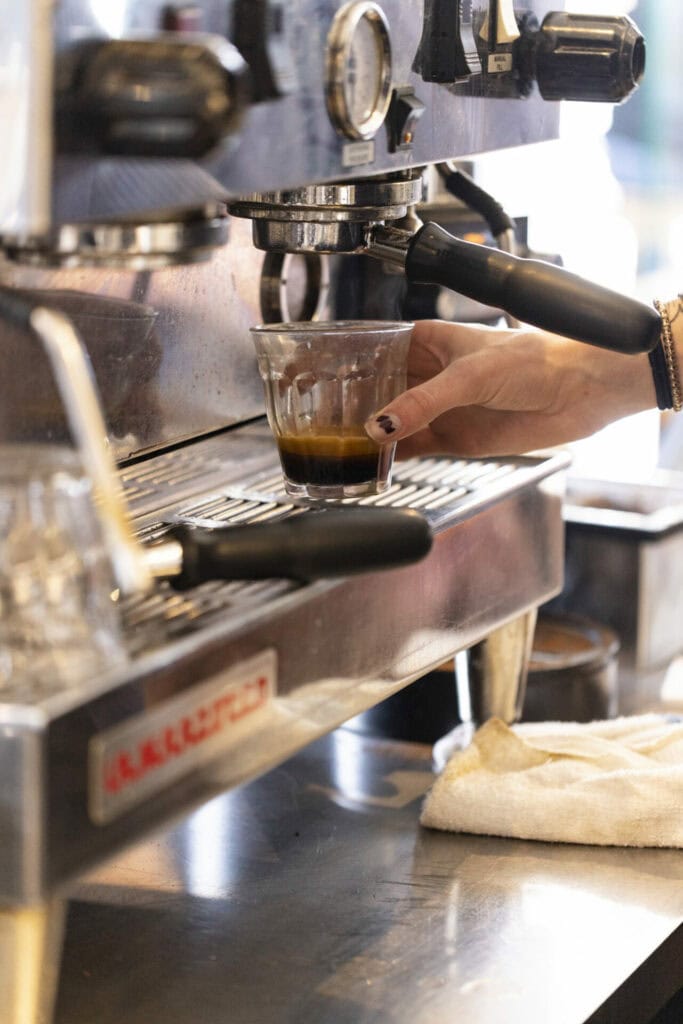
Biando’s boutique roasting business, known for its quirky, cartoony labels made by an artist friend, is in an industrial space in Old Town. His coffee is the featured brew in popular cafés like Seafolk in Rockport. Together with Belfast’s Spark Bagel, he does regular pop-ups at Goods, a gourmet grocery in Camden, that keep him engaged and in the public eye.
“I like coffees that are lively and fun. I try to find a throughline between the illustrations and the bag’s colors,” says Biando. “Coffee should be fun to drink and to check out. When someone sees a bag that’s not too snobby or elitist looking, they feel that way.”
What saturation point?
With so much coffee already on the streets in Maine, is the tipping point near?
“We are nowhere close to saturating the market,” says Pinard of Elements, pointing to the large number of craft breweries that continue to grow in Maine as another example of a market where there is plenty of room for many players to stay in the game.
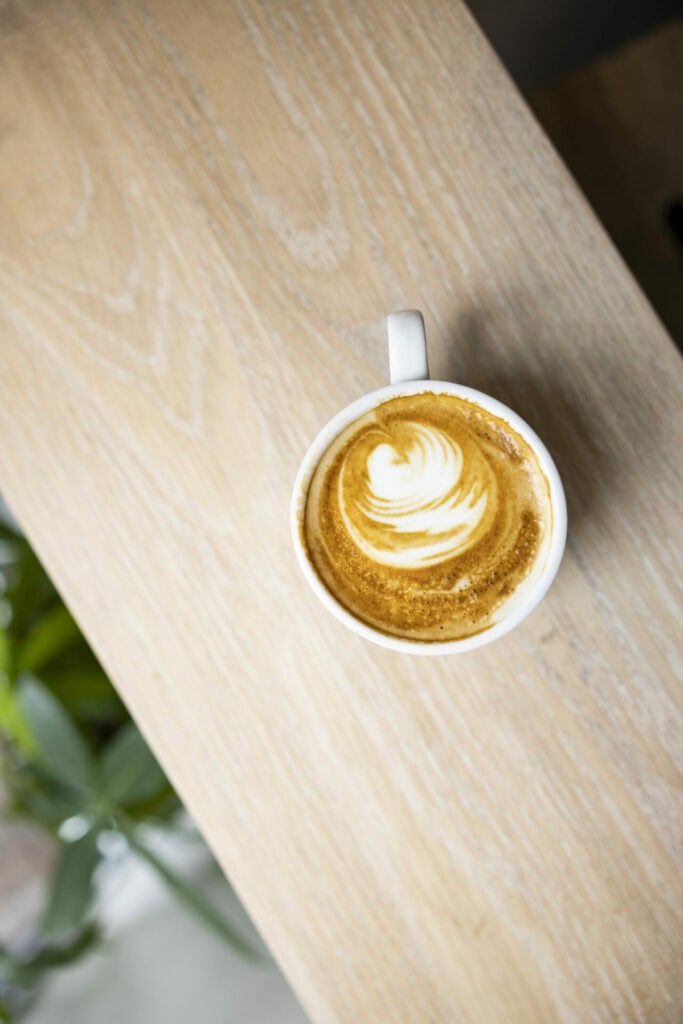
Though rising prices have made that afternoon pick-me-up a luxury, it’s a ritual that’s still accessible to most. Coffee sellers understand that their customers’ trips to a neighborhood spot offer more than a simple caffeine jolt.
“Coffee was always a powerful tool to bring people together,” says Lindemann. “Coffee can be enjoyed by all—it doesn’t matter your age, where you are from, or your economic background.”


